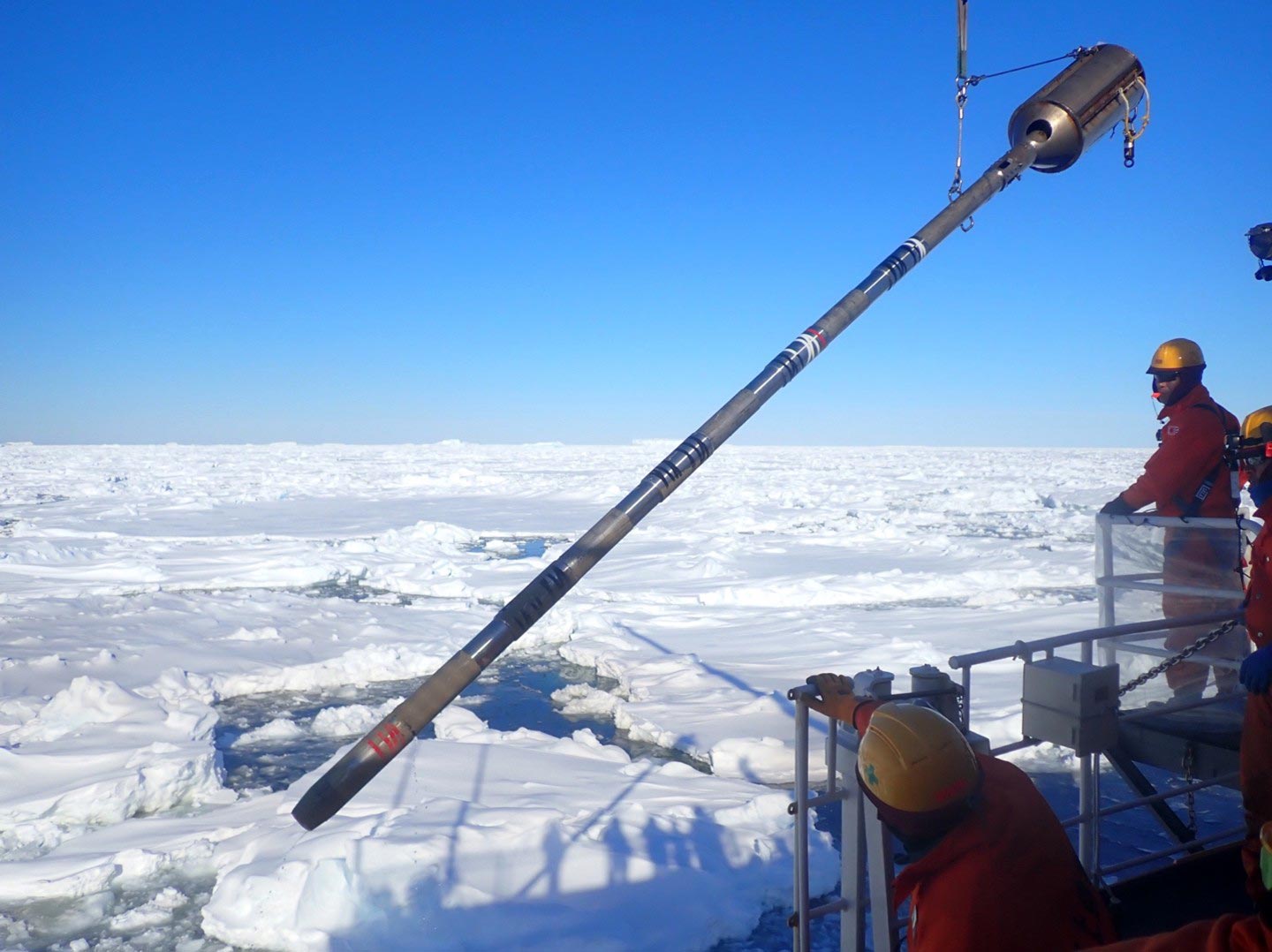🌊 The cascade mechanism accelerating sea level rise
Follow us on Google News (click on ☆)
This discovery is based on meticulous analysis of marine sediment cores collected from Lützow-Holm Bay, where Japanese scientific teams have accumulated samples over more than four decades during multiple polar expeditions.

A marine corer is deployed vertically to collect sediment samples from the ocean floor.
Credit: The National Institute of Advanced Industrial Science and Technology (AIST)
The use of advanced geochemical methods, including analysis of beryllium isotope ratios, has enabled accurate reconstruction of past environmental conditions.
Scientists were able to determine that ice melt in other sectors of Antarctica, such as the Ross Ice Shelf, had altered ocean water composition. The influx of freshwater from this melting created more pronounced vertical stratification in the water column, limiting mixing between cold surface layers and warmer deep waters.
High-resolution climate and oceanographic models confirmed the existence of a self-sustaining feedback loop. Enhanced stratification facilitated the upwelling of warm deep waters toward the continental shelves of East Antarctica, triggering in turn more melting.
This vicious circle illustrates how ice loss in one region can amplify the phenomenon in geographically distant areas, through the interconnections of the Southern Ocean system.

About 9,000 years ago, the influx of warm deep water caused the collapse of the ice shelf, accelerating the discharge of continental ice into the ocean.
Credit: Yusuke Suganuma (NIPR)
This international research, involving more than thirty institutions worldwide, demonstrates that the dynamics identified in the past remain relevant today. Professor Yusuke Suganuma emphasizes that this work provides essential elements for improving predictions about the future evolution of the Antarctic ice sheet.
Contemporary observations indeed show that glaciers like Thwaites and Pine Island are already undergoing similar processes of erosion by warm waters, with potentially significant consequences for sea level rise.